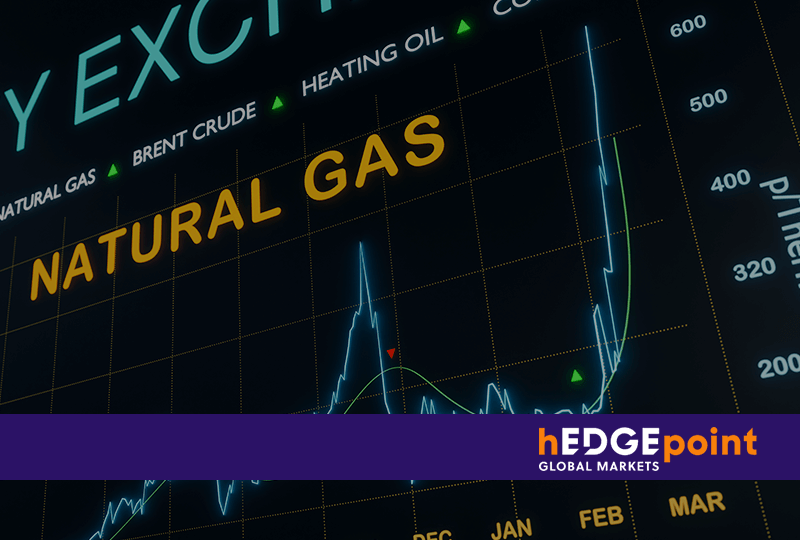
Several factors generate volatility and can drive commodity markets toward complicated paradigm shifts. Among them, we can highlight aspects that provoke s

Several factors generate volatility and can drive commodity markets toward complicated paradigm shifts.
Among them, we can highlight aspects that provoke structural transformations that guide the evolution of these commodity markets, such as the macroeconomic scenario, geopolitical conflicts such as the war between Russia and Ukraine, climate challenges, and the increase in interest rates in the United States that always has worldwide repercussions.
These events cause variations in the global supply and demand of commodities. The risk management market is inserted in this complex context and uses increasingly complete solutions to meet the requirements of different companies. Changes in commodity flows are evolving at an accelerated pace across the planet, increasing the need for more sophisticated risk management tools.

Given this scenario, Renato Dias, the Chief Commercial Officer at hEDGEpoint Global Markets, explains that it’s essential to assess everything that impacts both the fundamentals and balance sheets related to supply and demand:
“These developments affect the production of many commodities, causing major shifts in the patterns related to which countries offer the goods and to whom they sell. Thus, we need to observe the transformations in the producing regions and in the population’s, consumption levels as well,” he notes.
Continue reading to find out all the details on the subject!
According to Dias, there are four major factors that we need to check today which drive the complex evolution of the commodities sector:
Political issues play a crucial role in determining commodity market volatility, both locally and globally. Clearly, they can influence supply and demand, while interfering with investments and negotiation strategies.
Changes such as new government policies on tariffs and embargoes and changes in interest rates are some examples of how local political issues can impact us, while being reflected around the globe.
The consequences of ongoing geopolitical conflicts also affect the world’s commodity markets, changing production and distribution as Dias exemplifies.
“In the case of the current war, Russia and Ukraine are both important references for the energy and agricultural segments. For example, the war between the countries influences the global supply chains of critical goods such as oil and wheat,” he clarifies.
In addition, it influences economic relations between different countries, with blockades by the United States and other allies that make up the North Atlantic Treaty Organization (NATO) against Russia, Dias elaborates.
“The economies of nations behave in different ways in the face of this situation. China, for instance, has started to buy more products from countries that face North American sanctions,” he points out.
Due to current political issues, the market must be prepared to face production and supply interruptions, trade restrictions, infrastructure impacts, and changes in government policies. What’s the result for global commodity chains? There’ll be significant price variations in this market, governed by the fundamentals of international supply and demand.
Climate change is another vital aspect when trying to understand the complexity of commodity markets. “Climate factors are altering aspects such as the production of agricultural crops, which bring more volatility,” hEDGEpoint’s Chief Commercial Officer clarifies.
For you to grasp the question well, imagine that the population is growing and of course needs to eat every day. With a growing season hampered by bad weather and the consequent oscillation in production, it’s possible that there’ll be fewer primary goods available that are essential to feed the population. In other words, this causes imbalances in supply and demand, with repercussions felt throughout the commodities sector.
From Dias’s point of view, the biggest issue we need to consider related to food and energy security is to know that, in the coming years, the world will witness substantial growth in Asia and Africa.
“In this specific scenario, the demand for both food and energy will increase, imposing a new dynamic on commodity production chains, which will need to learn how to supply these markets with a potential for demand growth much greater than that of production,” he commented.
The global economy’s main axis of influence is also changing. Dias points out that, for demographic reasons, it currently exists in the United States and Europe. However, in commodity markets, it’s begun to change towards the eastern part of the planet, with the continued growth of China.
Other economies with high birth rates are also entering consumer markets, particularly in Asia. The continent is one of the main destination centers for agricultural commodities.
“This is a big challenge for commodity production chains, which must come to understand how to supply these rising markets,” Dias remarked.
The transition of companies to further adopt ESG (Environmental, Social, and Governance) practices is another challenge that is driving complex changes in commodity markets. People are more aware that the biggest consumer markets are migrating to millennials and those who will come after them. This target audience requires more socio-environmental responsibility on the part of companies.
In the agricultural sector, it’ll be essential to adopt better production practices, aiming at more sustainability, and the expansion of green field areas as well.
“Many areas where there’s no production now is expected to grow, along with the need to optimize productivity. Yet there are technologies already developed for this purpose,” Dias added.
Regarding energy commodities, the great challenge for nations is to think about how to improve the population’s quality of life while energy is inserted in consumer markets in a sustainable way. For Dias, one of the ways to overcome this challenge is to expand investments in renewable energy.
“With the investment in renewable energies, the population will be able to live with more well-being, and at the same time, socio-environmental impacts generated by consumption will be reduced,” he continued.
This creates a long-term alternative to reduce our dependence on fossil fuels. However, they’ll still be needed to meet global demand, as the energy market is the largest in the world.
“The demand for fossil fuel energy should continue for many decades, with great strength, but the demand curve will be flatter than when we compare it to previous decades,” Dias claims.
The main purpose of risk management is to mitigate the negative effects that arise in company results due to the volatility caused by all the points we’ve mentioned here. Dias clarifies the importance for companies to adopt tools to better manage risks.
“Our goals are to identify the factors that interfere with supply and demand and provide the complete analysis of internal issues specific to each commodity, so we can understand the risks and find the tools capable of mitigating them,” he stated.
According to Dias, risk management works for both producers and consumers in these markets.
“Risk management reduces the consequences of price volatility on producer income, and on the consumer side, it also reduces the extreme volatility that can lead to high prices that affect the cost of inputs, for example,” Dias commented. A world in transition causes uncertainties that generate volatility for commodity markets, whose operations then face price elasticity.
hEDGEpoint has professionals who have an extensive understanding of all these factors that drive complex paradigm shifts in commodity markets. We know how to act in this scenario. For this, we seek to map the transitions and trends that are occurring in our world.
Conhecer esses aspectos é essencial para gerenciar riscos de forma eficaz e trazer proteção aos negócios. Assim, conseguimos analisar dados, obter insights valiosos e oferecer os melhores produtos de hedge aos nossos clientes.
Knowing these aspects well is critical to effectively manage risk and bring protection to your business. We’re able to analyze complex data, obtain valuable insights, and offer hedging products to our clients.
Talk to a hEDGEpoint professional today: you can depend on us!

Rua Funchal, 418, 18º andar - Vila Olímpia São Paulo, SP, Brasil
Contato
(00) 99999-8888 example@mail.com
Section
Home
O que Fazemos
Mercado
Quem Somos
HUB
Blog
Esta página foi preparada pela Hedgepoint Schweiz AG e suas afiliadas (“Hedgepoint”) exclusivamente para fins informativos e instrutivos, sem o objetivo de estabelecer obrigações ou compromissos com terceiros, nem de promover uma oferta ou solicitação de oferta de venda ou compra de quaisquer valores mobiliários, commodity interests ou produtos de investimento.
A Hedgepoint e suas associadas renunciam expressamente a qualquer uso das informações contidas neste documento que direta ou indiretamente resulte em danos ou prejuízos de qualquer natureza. As informações são obtidas de fontes que acreditamos serem confiáveis, mas não garantimos a atualidade ou precisão dessas informações.
O trading de commodity interests, como futuros, opções e swaps, envolve um risco substancial de perda e pode não ser adequado para todos os investidores. Você deve considerar cuidadosamente se esse tipo de negociação é adequado para você, levando em conta sua situação financeira. O desempenho passado não é necessariamente indicativo de resultados futuros. Os clientes devem confiar em seu próprio julgamento independente e/ou consultores antes de realizar qualquer transação.
A Hedgepoint não fornece consultoria jurídica, tributária ou contábil, sendo de sua responsabilidade buscar essas orientações separadamente.
A Hedgepoint Schweiz AG está organizada, constituída e existente sob as leis da Suíça, é afiliada à ARIF, a Associação Romande des Intermédiaires Financiers, que é uma Organização de Autorregulação autorizada pela FINMA. A Hedgepoint Commodities LLC está organizada, constituída e existente sob as leis dos Estados Unidos, sendo autorizada e regulada pela Commodity Futures Trading Commission (CFTC) e é membro da National Futures Association (NFA), atuando como Introducing Broker e Commodity Trading Advisor. A Hedgepoint Global Markets Limited é regulada pela Dubai Financial Services Authority. O conteúdo é direcionado a Clientes Profissionais e não a Clientes de Varejo. A Hedgepoint Global Markets PTE. Ltd está organizada, constituída e existente sob as leis de Singapura, isenta de obter uma licença de serviços financeiros conforme o Segundo Anexo do Securities and Futures (Licensing and Conduct of Business) Act, pela Monetary Authority of Singapore (MAS). A Hedgepoint Global Markets DTVM Ltda. é autorizada e regulada no Brasil pelo Banco Central do Brasil (BCB) e pela Comissão de Valores Mobiliários (CVM). A Hedgepoint Serviços Ltda. está organizada, constituída e existente sob as leis do Brasil. A Hedgepoint Global Markets S.A. está organizada, constituída e existente sob as leis do Uruguai.
Em caso de dúvidas não resolvidas no primeiro contato com o atendimento ao cliente (client.services@hedgepointglobal.com), entre em contato com o canal de ouvidoria interna (ombudsman@hedgepointglobal.com – global ou ouvidoria@hedgepointglobal.com – apenas Brasil) ou ligue para 0800-8788408 (apenas Brasil).
Integridade, ética e transparência são valores que guiam nossa cultura. Para fortalecer ainda mais nossas práticas, a Hedgepoint possui um canal de denúncias para colaboradores e terceiros via e-mail ethicline@hedgepointglobal.com ou pelo formulário Ethic Line – Hedgepoint Global Markets.
Nota de segurança: Todos os contatos com clientes e parceiros são realizados exclusivamente por meio do nosso domínio @hedgepointglobal.com. Não aceite informações, boletos, extratos ou solicitações de outros domínios e preste atenção especial a variações em letras ou grafias, pois podem indicar uma situação fraudulenta.
“Hedgepoint” e o logotipo “Hedgepoint” são marcas de uso exclusivo da Hedgepoint e/ou de suas afiliadas. O uso ou reprodução é proibido, a menos que expressamente autorizado pela HedgePoint.
Além disso, o uso de outras marcas neste documento foi autorizado apenas para fins de identificação. Isso, portanto, não implica quaisquer direitos da HedgePoint sobre essas marcas ou implica endosso, associação ou aprovação pelos proprietários dessas marcas com a Hedgepoint ou suas afiliadas.
aA Hedgepoint Global Markets é correspondente cambial do Ebury Banco de Câmbio, de acordo com a resolução CMN Nº 4.935, DE 29 DE JULHO DE 2021, Artigo 14 do Banco Central do Brasil (BACEN).
Para mais informações sobre nosso parceiro, serviços disponíveis, atendimento e ouvidoria, acesse o link a seguir: https://br.ebury.com/